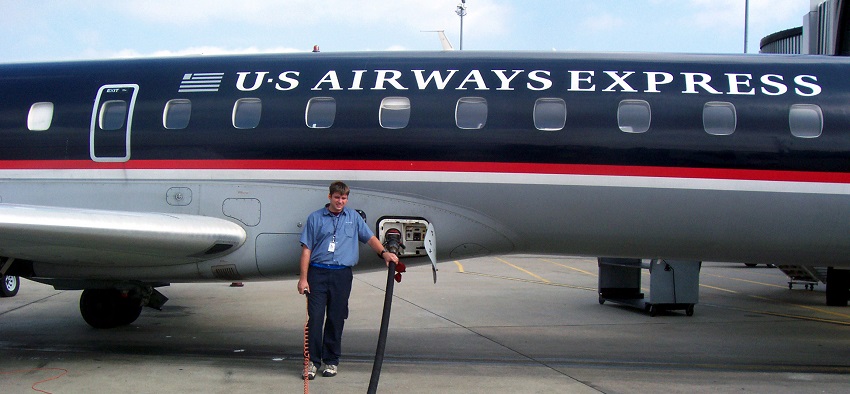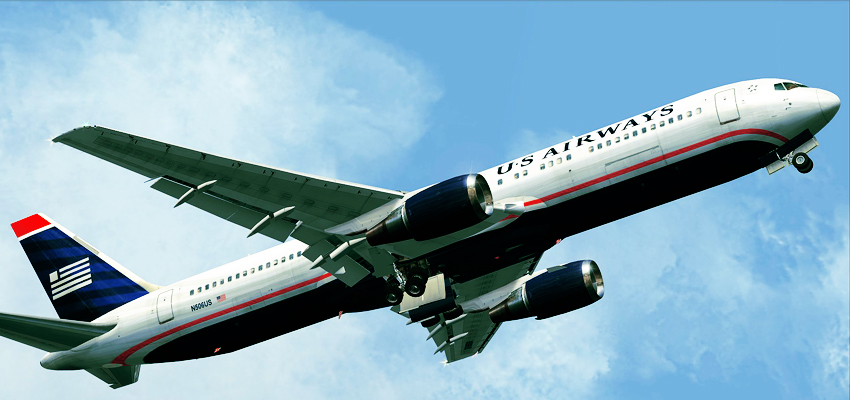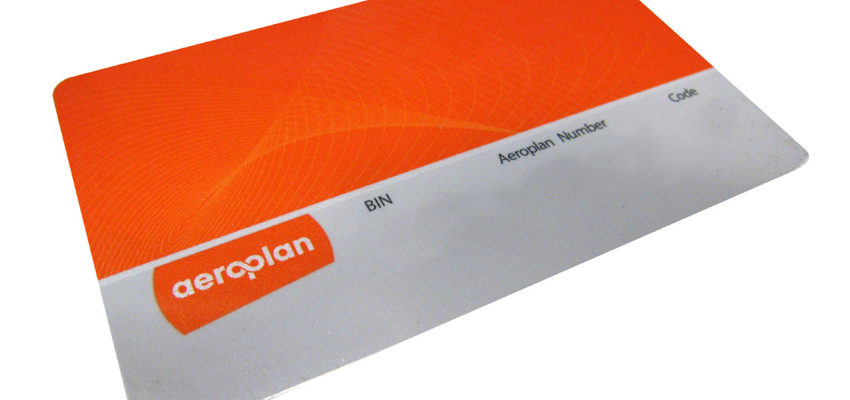The Skinny
As of April 2014, US Airways is leaving Star Alliance. It will no longer be a partner of Air Canada and will become a One World carrier. This will have a significant negative impact on the value of Aeroplan’s offering to Canadians for the following reasons:
- Devaluation 1: There are fewer good value flight redemptions available through Aeroplan
US Airways is one of the Star Alliance partners that doesn’t charge fuel surcharges on domestic redemptions
- Devaluation 2: The domestic stopover, one of Aeroplan’s great selling points, has lost its value
Aeroplan’s stopover on domestic tickets is much less valuable since stopovers in the US between two Canadian destinations could only be redeemed onflights operated by US Airways
- Devaluation 3: For certain routes, Aeroplan is losing its position as the most cost-effective way to book
Flights operated by US Airways are going to become much cheaper when bought using British Airways Avios points, thus taking away some opportunities where Aeroplan redemptions had great value
Overview
The Aeroplan program has been steadily losing value in recent years. 2014 saw a formal devaluation with a new award chart, where the number of miles required for many overseas flights increased substantially. The amount of taxes and fees on award tickets has also steadily increased over the years, to the point that these“taxes and fees” are as much as the cost of buying the same or similar flight with cash. Short-haul Aeroplan award tickets are generally poor value for almost all the routes that have significant traffic, as will be discussed in the next article.
In April 2014, US Airways is transferring from the Star Alliance to the One World Alliance. In this article, I show how US Airways’ departure from the Star Alliance is actually another rather significant devaluation for Aeroplan as it noticeably reduces the value of Aeroplan miles, for the following reasons:
- Devaluation 1: There are fewer good value flight redemptions available through Aeroplan
- Devaluation 2: The domestic stopover, one of Aeroplan’s great selling points, has lost its value
- Devaluation 3: For certain routes, Aeroplan is losing its position as the most cost-effective way to book
An Overview of Alliances
It is very important to understand the concept of airline alliances for any of this to make sense. Most airlines are part of an airline alliance where frequent flyer programs miles can be earned and redeemed across the alliance. The reason this exists is because any given airline will not fly every route in the world. If you wanted to go from Winnipeg to Xian (China), there are no single carriers who can take you the entire journey. Assuming Star Alliance carriers, part of the journey on Air Canada, and part on Air China. This allows Air Canada, for example, to get an “Air Canada passenger” (the one who lives in Winnipeg), to get to a smaller Chinese city, where Air Canada doesn’t fly their own planes into.
In terms of frequent flyer miles programs, in general, the miles generally can be earned and spent across the alliance. In general, the miles earned for flights on any Star Alliance carrier can be credited to any Star Alliance frequent flyer program (the Winnipeg passenger can earn Aeroplan miles on the entire Air Canada and Air China itinerary). In general, miles from Star Alliance carrier’s frequent flyer programs can be redeemed for flights on any Star Alliance carriers (Aeroplan miles can be redeemed for flights on Air China and other Star Alliance carriers).
There are 3 major airline alliances. Here are the carriers / frequent flyer programs that are relevant to people from North America:
| Alliance | Airlines / Frequent Flyer Program |
|---|---|
| Star Alliance | Air Canada Aeroplan United Airlines MileagePlus US Airways Dividend Miles (prior to April 1, 2014) |
| OneWorld | American Airlines AAdvantage British Airways Avios US Airways Dividend Miles (after April 1, 2014) |
| Skyteam | Delta Airlines Skymiles |
Here is an example of how it might work for a trip between Toronto and Miami. There are 3 carriers that fly this route (direct).
| Points / Miles | Taxes / Fees | ||
|---|---|---|---|
| Air Canada Flight | Revenue Price | $470 | |
| Aeroplan Award | 25K | $181 | |
| United MileagePlus Award | 25K | $57 | |
| American Airlines Flight | Revenue Price | $251 | |
| American AAdvantage Award | 25K | $57 | |
| British Airways Avios Award | 20K | $53 | |
| Westjet Flight | Revenue Price | $438 | |
| Westjet Award | 438 Westjet Dollars | ||
Devaluation 1: There are Fewer Good Value Flight Redemptions Available Through Aeroplan
Aeroplan is part of the Star Alliance, which is the largest airline alliance in the world. Airlines often change alliances and partnerships and this is no different. Today Star Alliance is losing a partner, but next year a partner airline of a similar size and footprint might be added to the program.
The exit of US Airways hurts Aeroplan’s customers especially hard because US Airways is a domestic partner, so members are losing flights for which they could have earned or redeemed Aeroplan miles. Furthermore, Aeroplan awards flown on US Airways flights carry no fuel surcharges, so they used to be a preferential partner with which to redeem miles.
Losing a Domestic Partner
Most Aeroplan members are Canadian or at least spend most of their time in North America. In all likelihood, a larger share of their flying will be in North America or will include North American segments. Thus, the number of flights on which Aeroplan members could earn miles has been reduced.
Redeeming miles is actually a bigger factor. Even for people who like to redeem their miles for overseas travel, that travel likely originates in North America. Often, it is harder to find the flights that get you from your local airport to the North American gateway airport to catch the overseas flight. Having a domestic partner adds many more potential award flights to choose from to get you to your gateway city.
Let’s assume Star Alliance were to trade US Airways for Kenyan Airways. For most Canadians, having Kenyan Airways as a partner is insignificant as Kenyan Airways would only be valuable when visiting Africa. For pretty much any flight outside of Canada, having US Airways provides at least an opportunity to get a flight to the North American gateway city.
Fuel Surcharges
As mentioned in previous articles, Aeroplan has some unbelievably high fuel surcharges that are applied to certain award tickets, based on the carrier. For example, if you redeem your Aeroplan miles for a flight operated by Air Canada, you will see some hefty fuel surcharges resulting in very high “taxes and fees”, which are paid in excess of the miles redeemed. If, instead, you redeem your Aeroplan miles for a flight operated by United, your taxes and fees will be considerably less, even for the same flight.
US Airways is one of those carriers where Aeroplan does not charge fuel surcharges, which makes it a great carrier to redeem Aeroplan miles on. With US Airways’ departure from Star Alliance, Aeroplan is losing a partner whose flights are very lucrative to redeem your miles on.

Devaluation 2: The Domestic Stopover, One of Aeroplan’s Great Selling Points, Has Lost Its Value
Every frequent flyer program has its strengths and weaknesses. For example, American AAdvantage miles are great as they allow you to take a free stopover (for up to 1 year) in the city you enter or depart North America. Making your home city your North American gateway city (and calling it a stopover point) would allow you to get a free one way within North America for a future trip.
One of Aeroplan’s great selling points is that it allows you to take a stopover on a domestic (within Canada / US) roundtrip itinerary. Unfortunately, the value of this benefit is greatly diluted with the exit of US Airways from the Star Alliance.
Prior to April 1, 2014, there following domestic (Canada / US) carriers that were/are partners of Aeroplan:
- Air Canada
- United Airlines
- US Airways
Losing US Airways leaves Aeroplan members with only Air Canada and United as partners with whom to redeem miles for domestic itineraries, and essentially negates the value of the domestic stopover benefit.
As I understand from Aeroplan phone agents, any domestic itinerary that includes a stopover can’t have any flights operated by United. Also, as we know, Aeroplan charges high fuel surcharges award flights operated by Air Canada. Furthermore, since Air Canada can’t operate flights on routes wholly within the US, there is no partner to fly those routes. Any stopover would have to take place in Canada.
- Air Canada – High fuel surcharges
- United – Not eligible for itineraries with domestic stopovers
- US Airways – No longer part of Star Alliance
US Airways leaving the Star Alliance essentially destroys the value of one of Aeroplan’s key benefits: the stopover on a domestic itinerary.
Devaluation 3: For Certain Routes, Aeroplan is Losing Its Position as The Most Cost-Effective Way To Book
One of the key benefits of a frequent flyer program is that it can discount the value of the ticket – it is really only valuable to you if you give up less to earn the miles than you get in return. You would also want to collect the type of point that generates the best value for you, with the program that will get you the same return with less effort.
Canadian travellers who fly routes to the US might prefer to collect frequent flyer points from OneWorld carriers, such as the British Airways Avios program, whose points can be redeemed on any OneWorld carrier. As of April 1, 2014, you will be able to redeem your British Airways Avios for flights on US Airways (in addition to American Airlines flights).
One of the great advantages of the BA Avios program is that is distance based and you are charged fewer miles for shorter flights. With the merger, you would be able to buy those short US Airways operated flights with very few BA Avios points.
Example:
Let’s say that you want to travel from Toronto to Charlotte roundtrip for a few days. There are 2 carriers who fly this route using direct flights: Air Canada and US Airways. The best price for a revenue ticket, on a direct flight, choosing the cheapest carrier is, $662. As a result of such a high revenue ticket price, I would strongly suggest looking at alternative methods of paying for this flight (ie using frequent flyer miles).
Up until April 1, 2014, both options (Air Canada and US Airways) would be on Star Alliance carriers. Using frequent flyer miles that can be redeemed for Star Alliance flights, the best way to do this route would be using Aeroplan miles to fly on the Air Canada operated flight. It would cost 15K Aeroplan miles + $180 in taxes. (You could also pay 25K Aeroplan miles + $100 in taxes for the US Airways flight, or 25K United or 25K US Airways miles + $57 in taxes for either Air Canada or US Airways flights)
After April 1, 2014, US Airways will be a member of the OneWorld Alliance (Air Canada will remain a Star Alliance carrier). This means that we can look into the frequent flyer miles that can be redeemed for OneWorld flights. The Toronto – Charlotte route is a domestic North America flight of 600 miles. The best way to pay for a flight of less than 650 miles on OneWorld carriers is by using British Airways Avios (miles). Using Avios, this would cost 9K Avios + $53 in taxes.
Assuming you are indifferent between carriers, your options for this would be:
- $662 revenue ticket (either carrier)
- 15K Aeroplan miles + $180 taxes
- 9K Avios + $53 taxes
Assuming British Airways Avios are not significantly more expensive to earn than Aeroplan miles (I would argue they are easier and cheaper to earn than Aeroplan miles), the best way to fly this route is clearly by paying 9K Avios + $53 taxes on the US Airways operated flight.
Flights Affecting Canadians
US Airways operates on 13 routes into Canada. Prior to the merger, the most cost-efficient way to fly some of these routes has been by using Aeroplan miles for the trip. Now that some of these routes can be bought using BA Avios, Aeroplan is no longer a competitive way to buy flights to some of these destinations.
Here is a breakdown of the costs for each of these routes:
| BA Avios | Aeroplan | |||||||
|---|---|---|---|---|---|---|---|---|
| Cash Fare | . | Points | Taxes / Fees | . | Miles | Taxes / Fees | ||
| Toronto | Philadelphia | $383 | 9K | $53 | 15K | $180 | ||
| Charlotte | $662 | 9K | $53 | 15K | $180 | |||
| Washington DC | $234 | 9K | $53 | 15K | $180 | |||
| Montreal | Philadelphia | $363 | 9K | $53 | 15K | $190 | ||
| Charlotte | $385 | 15K | $53 | 15K | $187 | |||
| Washington DC | $408 | 9K | $53 | 15K | $180 | |||
| Ottawa | Philadelphia | $364 | 9K | $53 | 23K | $115 | ||
| Charlotte | $357 | 15K | $53 | 23K | $115 | |||
| Halifax | Philadelphia | $367 | 15K | $53 | 23K | $118 | ||
| Quebec | Philadelphia | $372 | 9K | $53 | 15K | $208 | ||
| Vancouver | Phoenix | $317 | 20K | $53 | 25K | $180 | ||
| Calgary | Phoenix | $341 | 20K | $53 | 25K | $153 | ||
| Edmonton | Phoenix | $399 | 20K | $53 | 25K | $163 | ||
Note: all of these represent the direct flights on US Airways. British Airways Avios price per leg and each way independently. For more options a connection in one of these airports can open up more possibilities for further flights on US Airways, with each leg being charged the correct number of Avios
As you can see, in almost every case, it would cost less Avios and less taxes than compared to Aeroplan miles. If you are targeting one of these routes, it would be a better idea to collect British Airways Avios than collect Aeroplan.
Earning Avios in Canada
British Airways Avios can be earned through the following credit cards in Canada:
| Earning Rate | Transfer Ratio to Avios | |
|---|---|---|
| American Express Membership Rewards | 1 – 2 MR / $ spent | 1000 MR = 1000 Avios |
| RBC Avion Visa Infinite | 1 – 1.25 RBC / $ spent | 1000 RBC = 1000 Avios |
| RBC British Airways Visa Infinite | 1 Avios / $ Spent |
Recap
US Airways leaving Star Alliance will considerably reduce the value of Aeroplan miles for the following reasons:
- There will be one fewer domestic partner who doesn’t charge fuel surcharges
- The stopover on domestic roundtrip Aeroplan award tickets is significantly less valuable
- Many of the routes where Aeroplan redemptions represented great value will now be better value using British Airways Avios instead











I was recently on a US Airways flight where they were talking about their upcoming merger with American Airlines. They were still selling the Star Alliance, but I figured they’d be joining OneWorld. That’s no good how it’s going to create a negative domino effect to all of these other carriers around the world that were in their alliance.